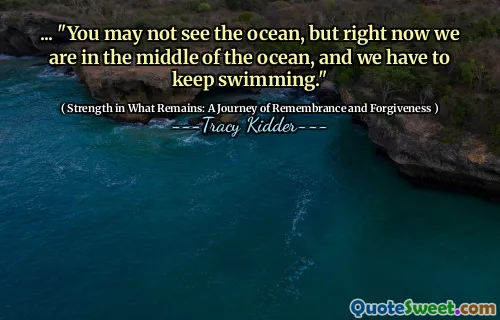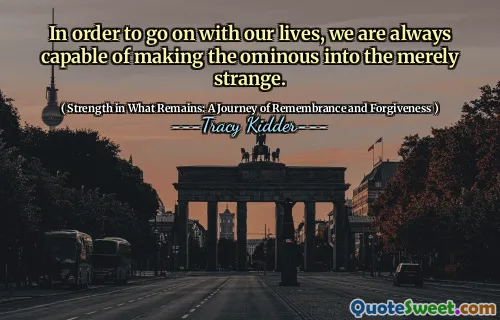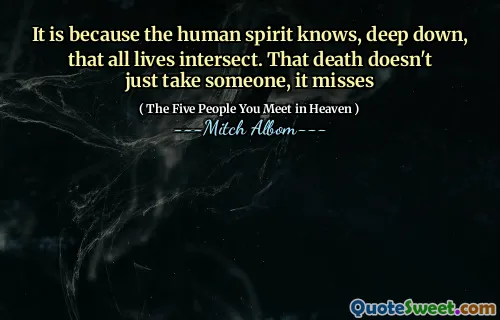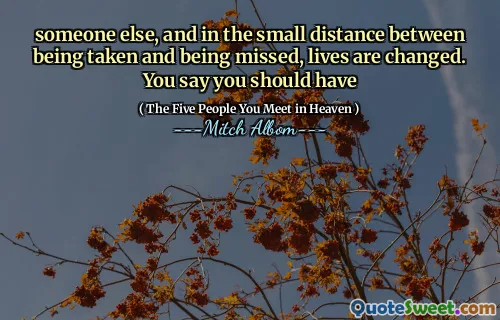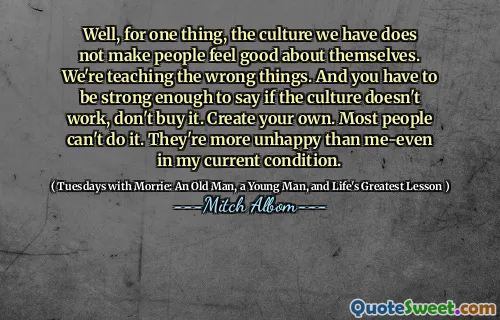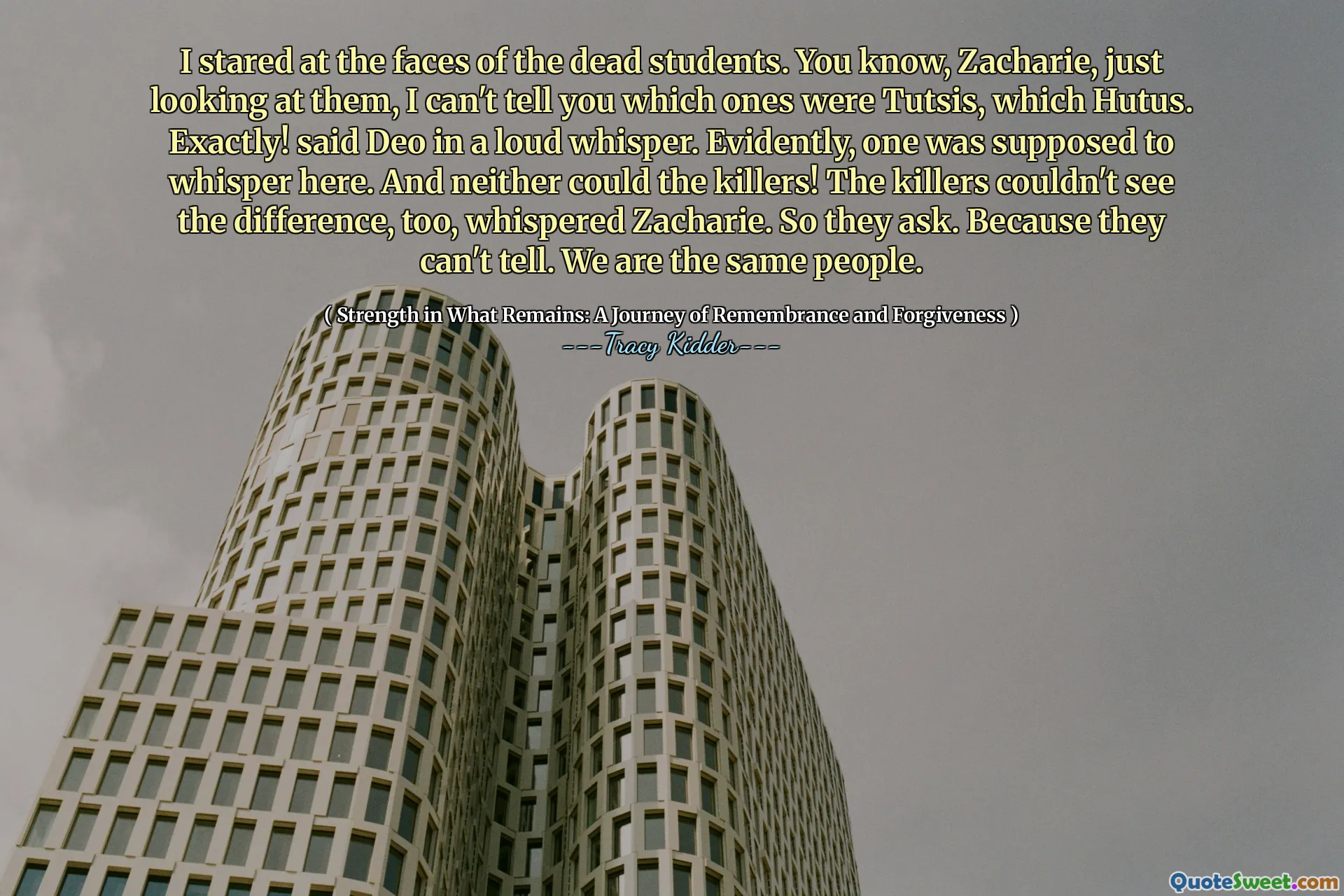
жҲ‘еҮқи§ҶзқҖжӯ»иҖ…зҡ„и„ёгҖӮдҪ зҹҘйҒ“пјҢжүҺеҚЎйҮҢпјҲZacharieпјүпјҢеҸӘжҳҜзңӢзқҖ他们пјҢжҲ‘ж— жі•е‘ҠиҜүдҪ е“ӘдәӣжҳҜtutsisпјҢе“ӘдёӘжҳҜиғЎйІҒж–ҜпјҲHutusпјүгҖӮзЎ®еҲҮең°пјҒиҝӘеҘҘеӨ§еЈ°иҜҙйҒ“гҖӮжҳҫ然пјҢжңүдәәеә”иҜҘеңЁиҝҷйҮҢе°ҸеЈ°иҜҙгҖӮжқҖжүӢд№ҹдёҚдјҡпјҒжқҖжүӢд№ҹзңӢдёҚи§Ғе·®ејӮпјҢжүҺеҚЎйҮҢдҪҺеЈ°иҜҙгҖӮжүҖд»Ҙ他们问гҖӮеӣ дёәд»–д»¬ж— жі•еҲҶиҫЁгҖӮжҲ‘们жҳҜеҗҢдёҖдёӘдәәгҖӮ
(I stared at the faces of the dead students. You know, Zacharie, just looking at them, I can't tell you which ones were Tutsis, which Hutus. Exactly! said Deo in a loud whisper. Evidently, one was supposed to whisper here. And neither could the killers! The killers couldn't see the difference, too, whispered Zacharie. So they ask. Because they can't tell. We are the same people.)
иҝҷеҸҘиҜқеҸҚжҳ дәҶжӮІеү§дёӯзҡ„дёҖдёӘеҮ„зҫҺзҡ„е®һзҺ°ж—¶еҲ»пјҢејәи°ғдәҶз§Қж—ҸеҢәеҲ«зҡ„иӮӨжө…гҖӮ Zacharieе’ҢDeoејәи°ғдәҶеңЁжӯ»дәЎдёӯпјҢеҸ—е®іиҖ…зҡ„иә«д»ҪеҰӮдҪ•жЁЎзіҠпјҢиұЎеҫҒзқҖи¶…и¶Ҡе…¶з§Қж—ҸиғҢжҷҜзҡ„дәәзұ»TutsiжҲ–Hutuзҡ„е…ұеҗҢдәәжҖ§гҖӮиҝҷдёӘжғіжі•иЎЁжҳҺпјҢжқҖжүӢйҖ жҲҗзҡ„жҡҙеҠӣжәҗдәҺж— зҹҘпјҢиҖҢдёҚжҳҜ他们и°ӢжқҖзҡ„дәәд№Ӣй—ҙзҡ„д»»дҪ•еҶ…еңЁе·®ејӮгҖӮ
иҝҷж¬Ўи°ҲиҜқејәи°ғдәҶж°‘й—ҙеҶІзӘҒзҡ„ж·ұиҝңеҪұе“ҚпјҢиҜҙжҳҺдәҶеә§дҪҚж·ұеӨ„зҡ„еҲҶиЈӮеҰӮдҪ•еҜјиҮҙз ҙеқҸпјҢдҪҶд№ҹжҸӯзӨәдәҶе…ідәҺдәәзұ»еҹәжң¬з»ҹдёҖзҡ„зңҹзҗҶгҖӮжқҖжүӢжң¬иә«йңҖиҰҒеҜ№иә«д»ҪиҝӣиЎҢжҫ„жё…зҡ„и§ӮеҝөиЎЁжҳҺпјҢжҡҙеҠӣзҡ„и®ҪеҲәжҳҜдёҖз§ҚжӮІжғЁзҡ„и®ҪеҲәпјҢиҝҷиҜҙжҳҺдәҶиҝҷдәӣеҲҶиЈӮжңҖз»ҲжҳҜдәәдёәзҡ„гҖӮиҝҷз§ҚжҖқиҖғйӮҖиҜ·иҜ»иҖ…иҖғиҷ‘еҗҢзҗҶеҝғзҡ„йҮҚиҰҒжҖ§д»ҘеҸҠеҜ№дҝғиҝӣеә·еӨҚе’Ңе’Ңи§Јзҡ„е…ұеҗҢз»ҸйӘҢзҡ„и®ӨиҜҶгҖӮ
